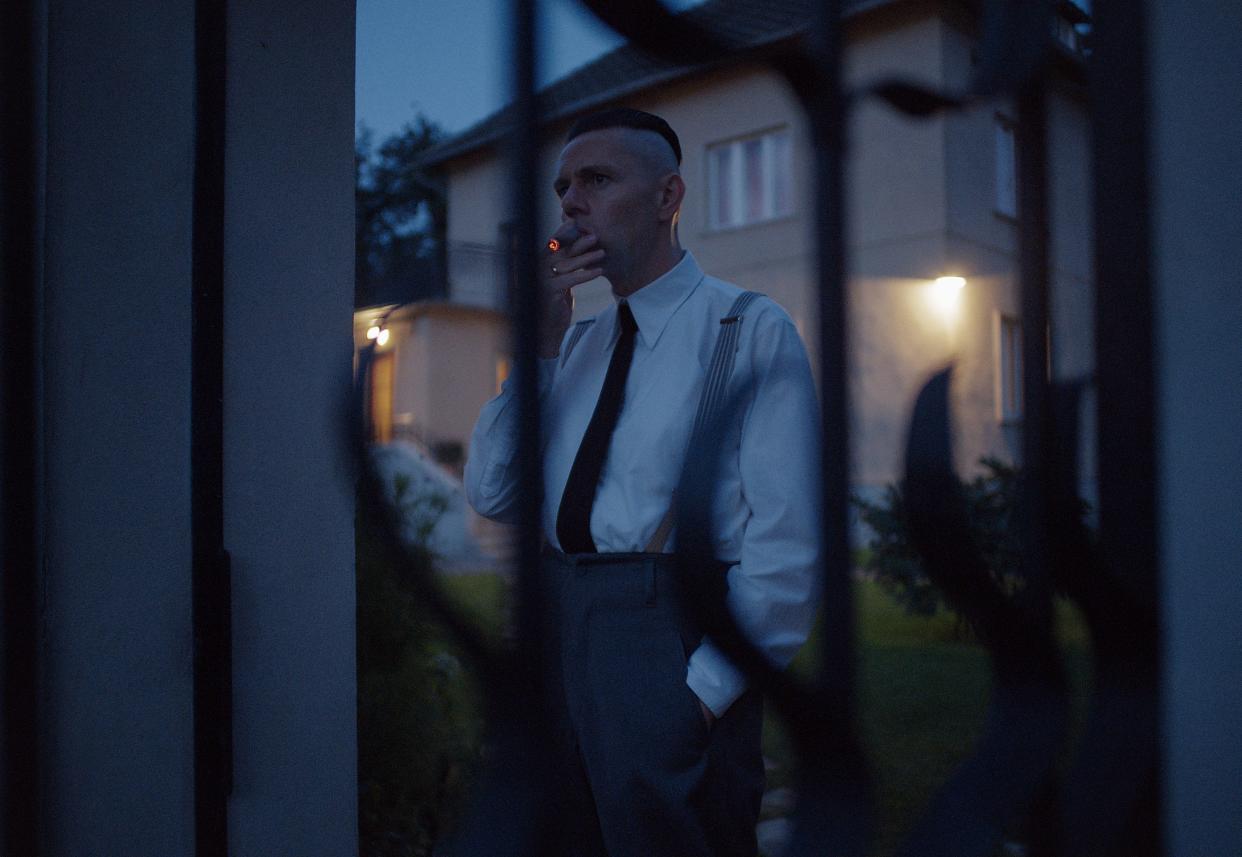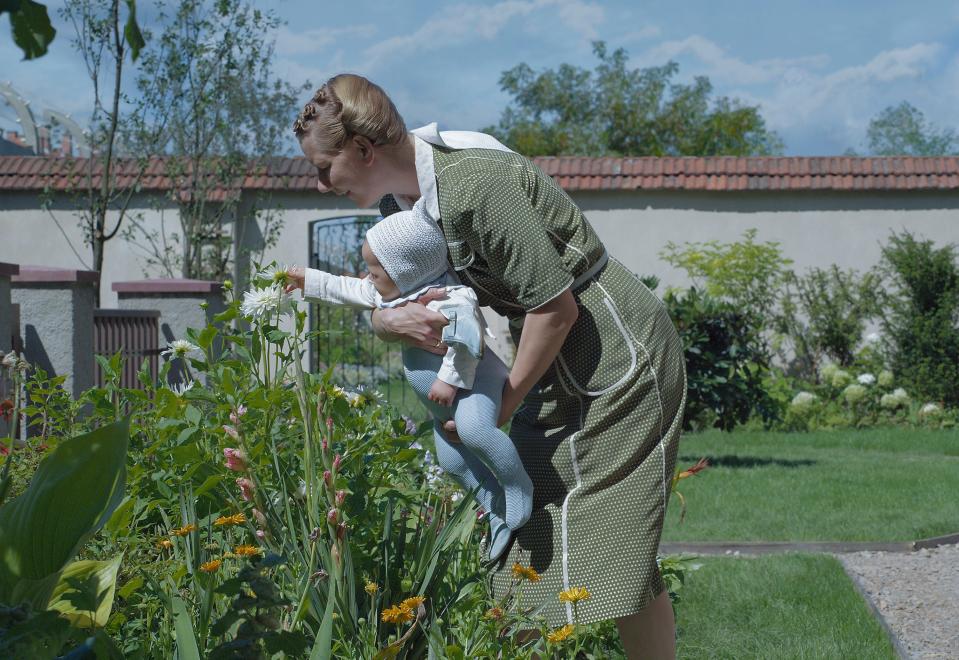Best picture nominee approaches danger 'Zone' of everyday evil

There’s a moral challenge one faces when offering a tepid or negative critique of a Holocaust film.
Any film on the subject — by definition — is important and urgent in the continual campaign to “never forget” and ensure future generations' awareness of what took place and of the capacity for human evil. Knowing the proliferation of Holocaust denialism even at this “enlightened” point in our history is proof such stories must continue to be told and should be encouraged.
Yet my job here is to report my reactions to a film and to untangle those thoughts in order to make sense of the moviegoing experience. Jonathan Glazer’s “The Zone of Interest” is designed to provoke complicated feelings from the audience by confronting us with humanity’s tolerance for the intolerable.
I believe Glazer wants to examine both characters and their actions to help understand whether evil is inherent as well as our ability to live within its proximity.
I rely on phrases such as “designed” and “believe” because I’m unsure what, if anything, is accomplished by the approach of “The Zone of Interest.” It seeks to implicate the audience through false equivalence. It wants to be about how we turn our eyes from terror by putting us in the position of those causing the terror. Which leaves its harrowing story hollowed out.
The film opens on an idyllic landscape as a family frolics. They return home, which turns out to be over the wall from Auschwitz. Patriarch Rudolf H?ss (Christian Friedel) is the commandant of this nightmarish place. But his motivations are familiar. He is ambitious and exacting; a workaholic who is also trying to be a family man. This Nazi wants it all!
Matriarch Hedwig (Oscar-nominee for "Anatomy of a Fall" Sandra Hüller) tends to her children and spends her time in the expansive garden of the home’s courtyard. She picks weeds and cultivates flowers as we hear gunshots and screaming and the hissing of furnaces offscreen. “The Zone of Interest” demands your full attention as so much of what you are to absorb happens offscreen.
From this technical standpoint, it is masterful. I once thought “Oppenheimer” had the best sound Oscar locked up. This film might have it topped for a riveting race in an unassuming category.
But it’s not as though we don't see the horrors in the home. Far from it. The housekeeping staff are prisoners. Hedwig parades around wearing seized fur coats. The children play with the gold fillings of teeth hidden in a box under the bed. Rudolf and his minions look over specs for a new incinerator during a party. Their discussions are cold; they might as well be IT guys talking about a patch for a software glitch.
He inevitably receives a promotion that requires a transfer to Berlin. But Hedwig cannot fathom leaving such a wonderful place where she’s raising their family.
So the film goes. It’s a domestic drama set in the shadow of 6 million deaths. There’s a fascination of sorts that goes into watching such a story. Rudolf and Hedwig were real people. Watching a film about the professional monsters who ensured the trains ran on time and “labor numbers were met” invites a morbid curiosity about the logistics that go into orchestrating mass atrocity.

But let’s get back to the walls and the sounds. Glazer wants to suggest that inhumanity left out of sight can lead to the acceptance of anything. That mass genocide can be banal when it becomes a part of the hum in the background. The smoke and the ash and the glow of that incinerator are portrayed as mere annoyances.
There’s a modern analogy sought, that we live with our creature comforts while horror goes on barely outside our periphery. As long as that wall is there, we can continue to traipse through our garden.
Although that is not what’s happening in “The Zone of Interest.” Rudolf and Hedwig are evil people. Rudolf literally runs a concentration camp. Hedwig gets upset at a worker and promises to “spread her ashes wide across a field.” They are as sinister as any humans who have ever lived. Which is to say, these are not passive passersby.
While Glazer wants to indict his audience with the same broad strokes as these characters, there are levels of guilt and levels of association the film ignores in making its point. The film becomes delusional under its self-righteousness.
Consider the film’s ending where we switch to modern times at the Auschwitz Museum and cleaning crews go about their job impervious to what’s around them. Does Glazer dare suggest the members of this cleaning crew should be outraged by what they are around every day? Or that, they too, are just as guilty as the Nazis? Just like us audience members?
I am not trying to be dramatic or provocative here. It’s a question I must ask because of the way the film presents itself.
Taken in its totality, “The Zone of Interest” remains coy about the Holocaust — of all things — so it might be a placeholder for other tragedies that the audience chooses to shy away from. It is an audacious effort and done with technical efficiency. But “The Zone of Interest” and its conflicting approaches simply fail to mesh dramatically.
The film is nominated for several Oscars, including best picture and best director. It is almost a certain lock for best international feature. So even if I feel like the film is full of misplaced indignation, it’s worth catching at Ragtag Cinema this week.
James Owen is the Tribune’s film columnist. In real life, he is a lawyer and executive director of energy policy group Renew Missouri. A graduate of Drury University and the University of Kansas, he created Filmsnobs.com, where he co-hosts a podcast. He enjoyed an extended stint as an on-air film critic for KY3, the NBC affiliate in Springfield, and now regularly guests on Columbia radio station KFRU.
This article originally appeared on Columbia Daily Tribune: Best picture nominee approaches danger 'Zone' of everyday evil